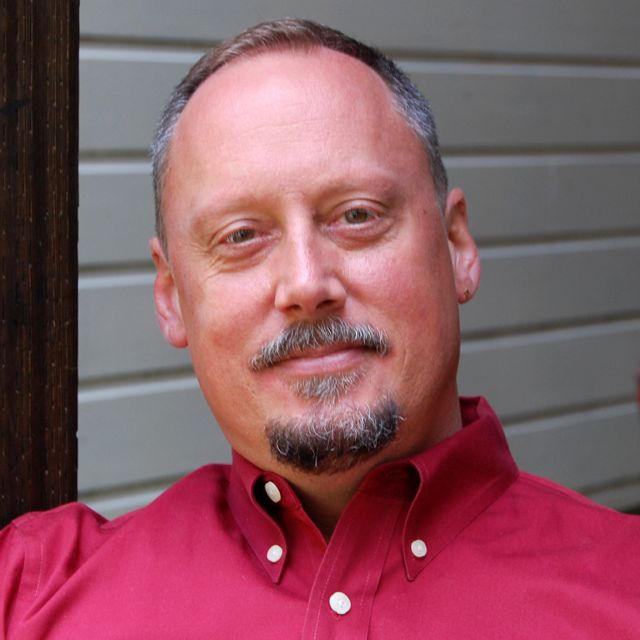

Born This Way? Exploring Theories of the Etiology and Development of Kink Desires
Where do kinks come from? When does a fetish begin to develop? Not only researchers, but many clients and patients also ask this question – often as a way of asking “Is this normal? Am I okay?”
While the development of sexuality in general is still clouded in mystery, there have been some attempts to propose the origins of kink and fetish, from a variety of perspectives. This workshop will examine what has been documented in terms of the etiology or origin of kink and fetish, and discuss theories of the beginnings of kink and fetish desire. A life course approach will also highlight general patterns in the development of kink and fetish as people get older.
The hope is that this overview will help clinicians and community members handle the common question of “Is this normal? Am I okay?” – or at least be somewhat comfortable with the big gaps in our understanding. This might help in facilitating and supporting the coming out process that many people experience on their kink journeys.
Intended Audience:
Beginner/Intermediate: The intended audience for this workshop includes mental health providers and medical providers who have some basic knowledge of kink/BDSM behaviors. As such, this is intended as an intermediate level training. Community members are welcome and may be part of the audience.

Learning Objectives
After completion of this educational opportunity, participants will be able to…
-
Describe at least two theories of the origins of kink or fetish desires
-
Explain similarities and differences in the coming out process for kink compared to sexual orientation disclosure
-
Discuss likely clinical issues presented by clients and patients around the developmental changes related to kink or fetish desires

Richard A. Sprott, Ph.D.

Richard Sprott received his Ph.D. in Developmental Psychology from UC Berkeley in 1994. His early work was on social and language development in early childhood. Throughout the 1980s, he conducted program evaluations for educational programs for migrant farmworker families and worked in other areas of migrant farmworker education. As a researcher he has examined in detail the relationship between professional identity development and the development of professional ethics in medical doctors, ministers and teachers, and professional identity development in emerging fields of work. He is currently directing research projects focused on identity development and health/well-being in people who express alternative sexualities and non-traditional relationships, with a special emphasis on kink/BDSM sexuality, and polyamory or consensual non-monogamy. He was President of the Society for the Psychology of Sexual Orientation and Gender Diversity (APA Division 44) for 2021-2022. He is also the co-author of Sexual Outsiders: Understanding BDSM Sexualities and Communities (Rowman & Littlefield, 2013). Along with Dr. Elisabeth Sheff, he is co-editor of a new book series Diverse Sexualities, Genders, and Relationships from Rowman & Littlefield. Richard currently teaches courses in the Department of Human Development and Women’s Studies at California State University, East Bay and graduate level courses at various universities in the Bay Area.

Continuing Education Information
The complete event of three hours is eligible for 3 CE units. APA CE credit is not available for this training.
This program meets the requirements of the American Association of Sexuality Educators, Counselors and Therapists (AASECT) and is approved for 3 CE credits. These CE credits may be applied toward AASECT certification and renewal of certification. Completion of this program does not ensure or guarantee AASECT certification. For further information please contact [email protected].
For further information on CE credit, please contact Richard Sprott at [email protected] directly.

Scholarship Opportunities
TASHRA offers scholarships for attendance to our classes for select applicants. Use the link below to apply for a scholarship to attend this continuing education opportunity. Applications must be submitted at least 1-week prior to the start of the training. We are only able to offer 3-6 scholarships per course. Scholarships will take the form of 50% of tuition being covered. Applicants will be evaluated per their level of need and purpose for pursuing continuing education.
Application link: https://docs.google.com/forms/d/e/1FAIpQLSer0jnLFpFLHv8U0Ysfy6Z2dtlSpBTmWDe8c-IAPlwE2B-eUg/viewform

Cancellations and Complaint Procedures
TASHRA is committed to conducting all activities in compliance with the American Psychological Association’s (APA) Ethical Principles of Psychologists and the American Association of Sexuality Educators, Counselors and Therapists (AASECT) Code of Conduct. TASHRA will adhere to all legal and ethical responsibilities to be nondiscriminatory in promotional activities, program content, and the treatment of program participants. Monitoring and assessment of these standards will be the responsibility of the TASHRA Clinical Training Team and Professional Development Services Manager (richard @tashra.org).
While TASHRA makes every attempt to assure fair treatment for all participants, occasionally complaints will arise about continuing education programs. This does not include complaints or comments received on course evaluations.
The person with a grievance will first try to informally resolve their grievance by contacting TASHRA with the issue concerning the training, its delivery, the evaluation method, technological issue, other student(s), and/or any other concern.
When a participant files a complaint, either orally or in written format, and expects action on the complaint, the following actions and procedures will be taken:
- If the grievance concerns a speaker, the content presented by the speaker, or the style of presentation, the individual making the complaint will be asked to put his/her comments in written format. The Professional Development Services Manager will then pass the comments on to the speaker, assuring the confidentiality of the complainant.
- If the complaint concerns a workshop offering, its content, level of presentation, or the facilities in which the workshop was offered, Professional Development Services Manager will mediate and attempt to resolve the complaint promptly. If the participant requests action, the Professional Development Services Manager is empowered to:
- Attempt to move the participant to another workshop, or
- Provide a credit for a subsequent year’s workshop, or
- Provide a partial or full refund of the workshop fee.
- Actions 2.2 and 2.3 will require a written note, documenting the grievance, for record keeping purposes. The note need not be signed by the grieved individual.
- If the complaint is made after the program has occurred or concerns the TASHRA CE programming more generally, the Professional Development Services Manager will address it as follows:
- Request that the complainant submit a written complaint and propose an appropriate remedy.
- Provide the instructor(s) with the opportunity to respond to the complaint and propose an appropriate remedy,
- Review these documents, make a final determination, and decide on any remedy
- TASHRA’s Clinical Training Committee will then consult regarding this grievance in an effort to find fair methods of resolving the grievance.
- If the aggrieved person is not satisfied with the solutions put forth, then they may put their grievance in writing and contact the American Association of Sexuality Educator, Counselors, and Therapists (AASECT). The appropriate AASECT personnel can be reached at [email protected].
- TASHRA will abide by any decisions made by the APA or AASECT regarding resolution of the grievance.
For further information, contact the Research Director of TASHRA, Richard A. Sprott, at [email protected] or at 510-919-4488. You can also contact us at
TASHRA, P.O. Box 812, Rio Vista, CA 94571.
Cancellation Policy
Participants may cancel up to ten days before a scheduled workshop without penalty and receive a credit for another workshop or a refund minus $7 for processing costs. If a participant cancels less than ten days before, they will be responsible for payment. TASHRA reserves the right to cancel any event that does not meet our minimum registration of 16 participants within 4 business days of the class. If TASHRA cancels an educational event, participants will receive a credit toward another workshop.

Registration Details
To learn more about the difference in the two ticket prices, please see the ticket descriptions. All ticket holders will receive access to the recordings of the event and be eligible to earn asynchronous CEUs.
Ticket option 1: Licensed Professional
Ticket description: This ticket includes 3 AASECT CEUs upon completion of required materials. A recording of the training will be made available to individuals who purchase this ticket and participants will have the opportunity to earn CEUs asynchronously.
Ticket option 2: Non/pre-licensed Professional
Ticket description: This ticket does not include CEUs upon completion of required materials. A recording of the training will be made available to individuals who purchase this ticket and participants will have the opportunity to earn CEUs asynchronously. This ticket is recommended for community members.

